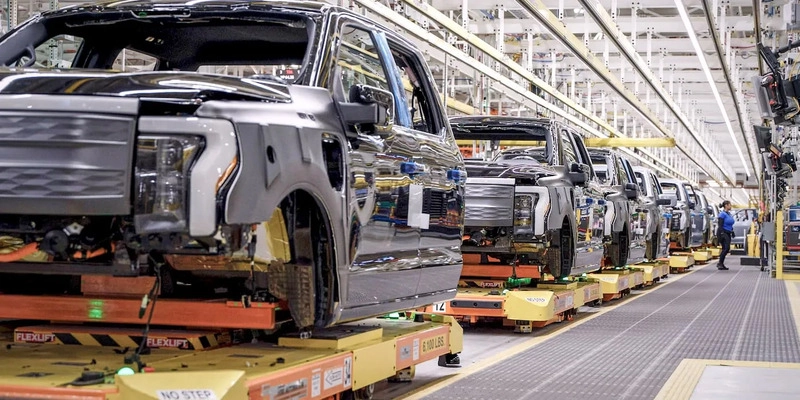One of the consequences of a slowdown in electric vehicle (EV) demand is that battery costs fall, leading to lower prices and helping stimulate demand.
During the early months of the year, sales of zero-emission cars in countries such as Austria, Germany, and Sweden gradually declined.
This creates uncertainty in the sector, where several companies have been surprised to find that global demand for EVs is lower than expected.
As a result, some firms are considering reducing their sales and production forecasts in this area.
Meanwhile, the battery market continues to grow, and according to a study by BloombergNEF, the world is awash with manufacturing capacity, making “life very difficult for new entrants.”
In this context, Colin McKerracher, Head of Clean Transport, emphasizes: “We’re heading for serious overcapacity in the market. Good news for automakers and EV buyers, but challenging times ahead for new entrants to the battery game.”
The research organization estimates that demand for lithium-ion batteries for EVs and stationary storage was around 950 gigawatt-hours (GWh) last year.
Global manufacturing capacity was more than double that, close to 2,600 GWh.
In this regard, it points out that just China’s battery production in 2023 was similar to global demand.
Moreover, during January-March 2024, Asian companies occupied the top five positions in the world market share of batteries for electric vehicles.
Specifically, according to CnEVPost, Chinese companies CATL (37.9 per cent) and BYD (14.3 per cent) were the largest producers, followed by the Korean LG Energy Solution (13.6 per cent).
The fourth and fifth places were taken by the Japanese company Panasonic (5.8 per cent) and the South Korean Samsung SDI (5.3 per cent), respectively.
During this period, total global consumption of batteries for EVs was 158.8 GWh, 22 per cent more than the 130.2 GWh from the same cycle last year, according to SNE Research data.
Faced with this situation, Europe is trying to increase its share in this market.
For example, several countries, such as Spain, are granting subsidies to grow local industries.
“This means that the oversupply scenario will worsen before it gets better,” BloombergNEF says.
As a result, costs will fall, as is already happening, with a 14 per cent decrease in average battery pack prices in 2023.
In this context, CATL is starting a price war in the sector, announcing that this year the cost per kilowatt-hour (kWh) will drop by up to 50 per cent.
From a positive perspective, this will result in greater affordability of electric vehicles, as the cost of the battery is one of the determining factors of their price.
All of this should be good for consumers, as lower fees will begin to arrive for many cheaper models expected to be launched in 2025 and 2026.
However, low charges will make it difficult for new entrants to compete.
At the same time, China is expanding its dominance in creating technologies that drive the energy transition.
Last year, the country increased its share in global production capacity in 12 key areas, including battery components, metal refining, and hydrogen electrolyzers.

According to the report, its share in global production capacity is now above 80 per cent for 11 essential technologies.
In response to this, Oliver Fernández, Director of Electric Mobility at Repsol, states in a LinkedIn post:
“In the EV and all the ancillary industry, the new hegemony is clear if we look at China’s dominance in the supply chains of the main ‘Clean-Tech’ technologies.”
And he emphasizes: “Do we really want that dependence? eMobility will be one of the enablers to achieve net-zero but it should not be at any cost and even less risking the sovereignty, economy, and energy independence of anyone.”








